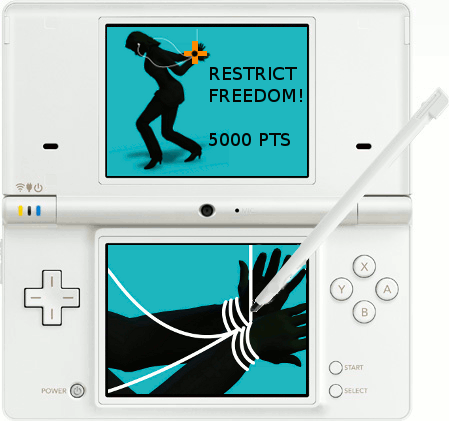| Attachment | Size |
|---|---|
| 45.48 KB |
In November, Nintendo released the DSi console in Japan. Next month, the rest of the world will be hit by this console. Similar to the previous Nintendo DS and DS Lite consoles, the DSi has two screens and the ability to access WiFi networks. However, in an effort to heavily control what gamers can do with their consoles, Nintendo has chosen to encumber this new version with Digital Restrictions Management (DRM).

By keeping it similar in style and backward-compatible with many, but not all, Nintendo DS and DS Lite games, Nintendo is hoping the public will ignore the restrictions in favor of some surface enhancements.
Support for the previous Game Boy Advance games has gone, and an SD card slot has been added. On previous models, users were able to make good use of the hardware for homebrew games and various free software applications, such as ScummVM and the GNU/Linux OS via a third-party adapter.
Nintendo has specifically blocked these adapters on the DSi, hoping to woo the general public with music playback via the encumbered AAC format, two low-resolution digital cameras and support for modern wireless network security. All this ties nicely into their forthcoming DRM-infected download service, DSiWare -- a sibling of the WiiWare and Virtual Console services on the Wii, plus, for the first time on a Nintendo handheld, region locking -- effectively locking out the import market.
Oh, and if any of these restrictions are broken, Nintendo can update your console's firmware via both new game cartridges and over the air updates.
What Nintendo is doing with this move further distances itself from the homebrew DRM-free development community. Just as it has done on the Wii, Nintendo engages in a constant game of cat-and-mouse with the developers, patching its badly written security subsystem with forced patches and upgrades specifically designed to lock out legitimate third-party development by people who are unable or unwilling to sign Nintendo's onerous developer agreements and rent expensive development systems.
All this adds up to making up and coming free/open consoles like OpenPandora and the Fuzebox all the more attractive for game hackers and hobbyist developers. By supporting systems that actively go against the grain of locking users into proprietary development platforms, we encourage the development of free software games.
How can you fight this? Not buying the Nintendo DSi would be one way. By not buying it, we send a message to Nintendo and the game companies that this is unacceptable. Namco Bandai is the first third-party developer to support DSi -- contact them, and Nintendo below.
- Nintendo: nintendopower@futureus.com and Nintendo's online support
- Namco Bandai: support@namcobandaigames.com